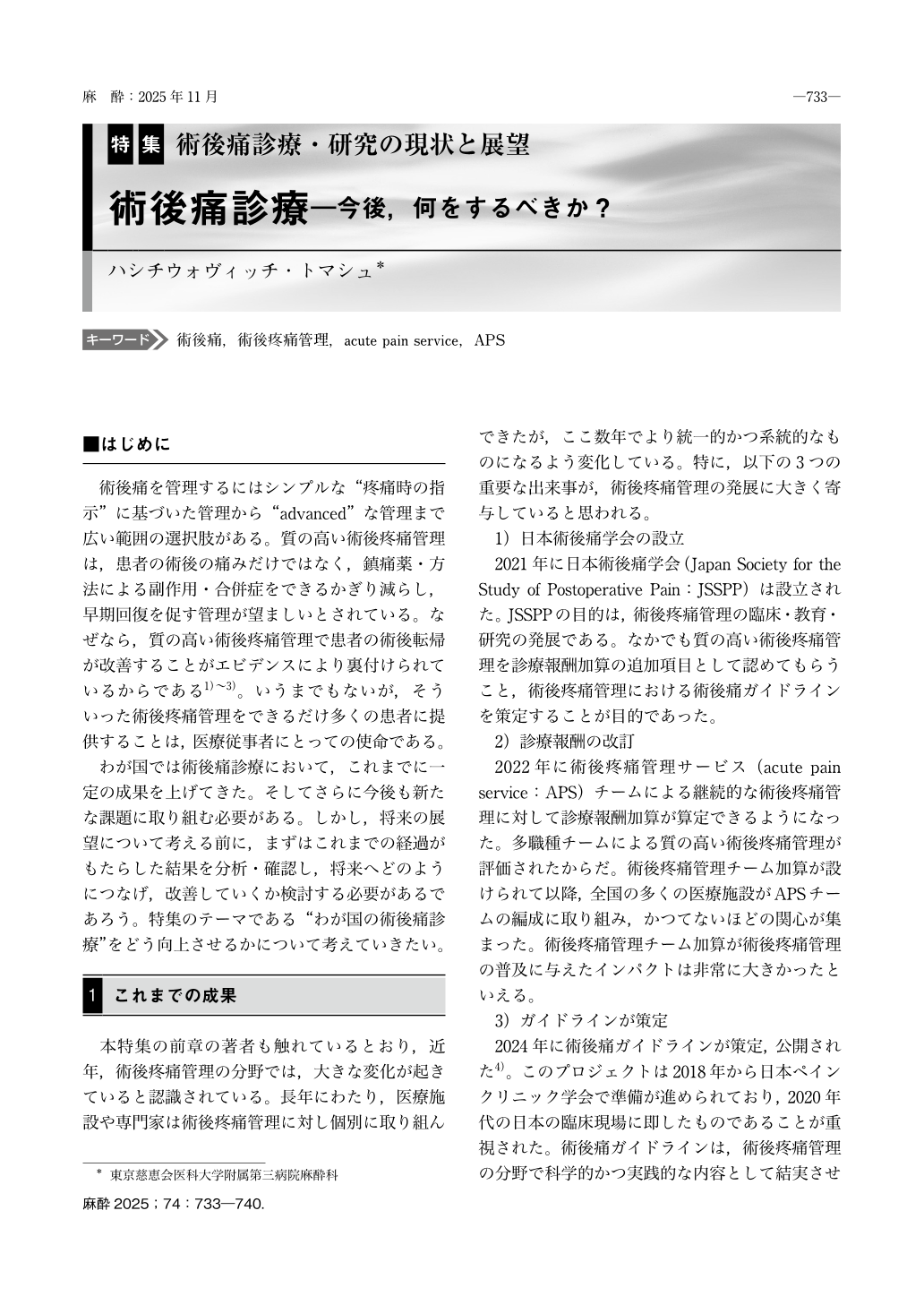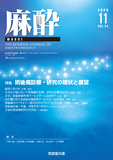Japanese
English
- 有料閲覧
- Abstract 文献概要
- 1ページ目 Look Inside
- 参考文献 Reference
はじめに
術後痛を管理するにはシンプルな “疼痛時の指示” に基づいた管理から “advanced” な管理まで広い範囲の選択肢がある。質の高い術後疼痛管理は,患者の術後の痛みだけではなく,鎮痛薬・方法による副作用・合併症をできるかぎり減らし,早期回復を促す管理が望ましいとされている。なぜなら,質の高い術後疼痛管理で患者の術後転帰が改善することがエビデンスにより裏付けられているからである1)~3)。いうまでもないが,そういった術後疼痛管理をできるだけ多くの患者に提供することは,医療従事者にとっての使命である。
わが国では術後痛診療において,これまでに一定の成果を上げてきた。そしてさらに今後も新たな課題に取り組む必要がある。しかし,将来の展望について考える前に,まずはこれまでの経過がもたらした結果を分析・確認し,将来へどのようにつなげ,改善していくか検討する必要があるであろう。特集のテーマである “わが国の術後痛診療” をどう向上させるかについて考えていきたい。
Three recent major achievements in the field of postoperative pain management in Japan are the establishment of the Japanese Society for the Study of Postoperative Pain(JSSPP)(2021), the introduction of an insurance reimbursement addition fee for Acute Pain Service(APS)(2022), and the publication of postoperative pain management guidelines by the Japan Society of Pain Clinicians(2024). However, despite these advances, only 30% of Japanese healthcare facilities have implemented an APS team, and the existing teams are primarily at university hospitals and large medical centres. The remaining hospitals cite staff shortages, time constraints, and lack of motivation as barriers to having an APS team. In addition, significant disparities exist between the hospitals with established APS programs and those with recently formed teams.
To standardize and improve postoperative pain management(POPM)across Japan, I propose four strategies:promoting multi-disciplinary approaches at all organisational levels, establishing support systems between experienced and newer institutions, developing and distributing educational resources for patients and all healthcare professionals involved in POPM, and clarifying the roles and responsibilities of the JSSPP in coordinating these efforts.
Broader challenges aligned with global POPM trends are also addressed herein, including the integration of pain management approaches within comprehensive perioperative care programs such as Enhanced Recovery After Surgery(ERAS), Transitional Pain Service(TPS), and Perioperative Surgical Home(PSH)programs. Finally, the need for evidence-based evaluations and a standardization of emerging technologies that may enhance pain assessment and management(including artificial intelligence[AI]-assisted medication optimisation and remote patient-controlled analgesia[PCA]devices)is also addressed.

Copyright © 2025 KOKUSEIDO CO., LTD. All Rights Reserved.


